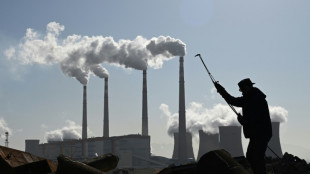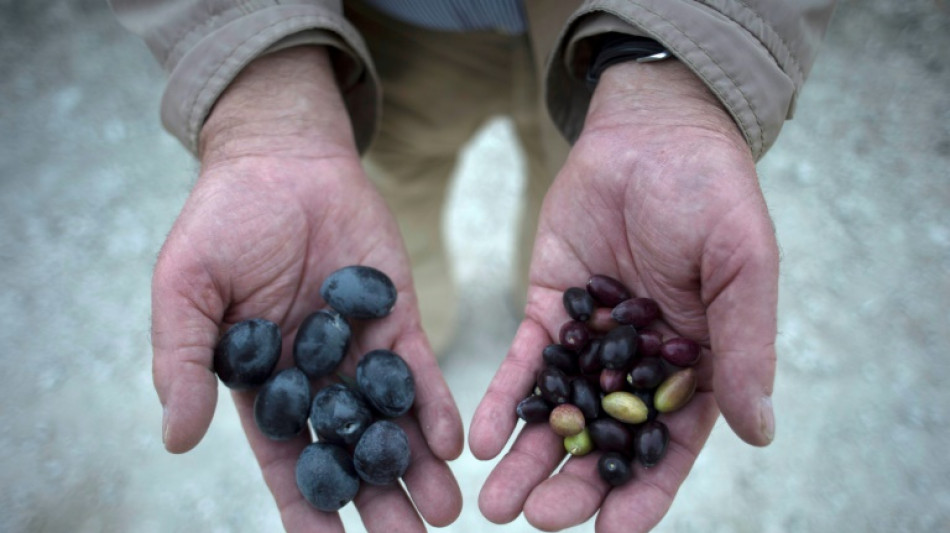
-
 Lessons and liquids: buried alive in Myanmar's earthquake
Lessons and liquids: buried alive in Myanmar's earthquake
-
Trump tariffs spark fears for Asian jobs, exporting sectors
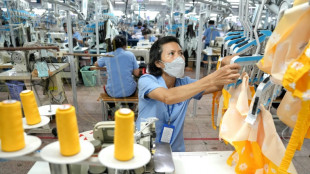
-
 Stocks and dollar sink, havens rally as Trump tariffs fan trade war
Stocks and dollar sink, havens rally as Trump tariffs fan trade war
-
Runners fly to North Korea for first post-Covid Pyongyang Marathon
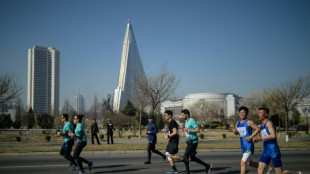
-
 Hamilton rubbishes claims he's lost faith in Ferrari
Hamilton rubbishes claims he's lost faith in Ferrari
-
Nintendo Switch 2 sparks excitement despite high price

-
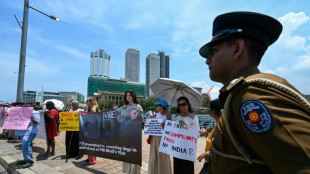 Sri Lanka's crackdown on dogs for India PM's visit sparks protest
Sri Lanka's crackdown on dogs for India PM's visit sparks protest
-
S Korea police raise security levels ahead of impeachment verdict
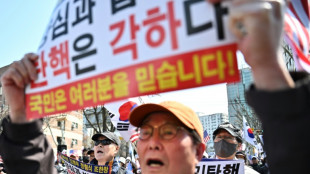
-
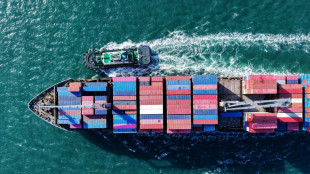 China vows 'countermeasures' to sweeping new US tariffs
China vows 'countermeasures' to sweeping new US tariffs
-
Trump jolts allies, foes and markets with tariff blitz
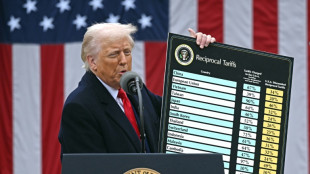
-
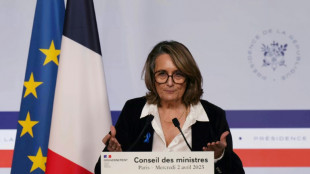 France says EU to target US online services after Trump tariffs
France says EU to target US online services after Trump tariffs
-
Tsunoda vows to bring 'something different' after Red Bull promotion

-
 Verstappen not happy with Tsunoda-Lawson Red Bull swap
Verstappen not happy with Tsunoda-Lawson Red Bull swap
-
Experts accuse 54 top Nicaragua officials of grave abuses
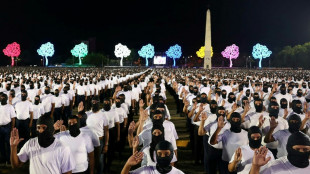
-
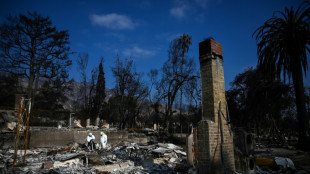 Remains of 30th victim of Los Angeles fires found
Remains of 30th victim of Los Angeles fires found
-
EU to target US online services after Trump tariffs: France
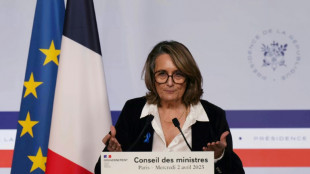
-
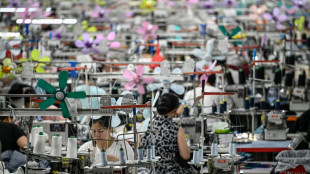 How Trump's 'liberation day' tariffs will impact China
How Trump's 'liberation day' tariffs will impact China
-
Malaysia suspends search for long-missing flight MH370

-
 Search for long-missing flight MH370 suspended: Malaysia minister
Search for long-missing flight MH370 suspended: Malaysia minister
-
Europe hits out at Trump tariffs, keeps door open for talks
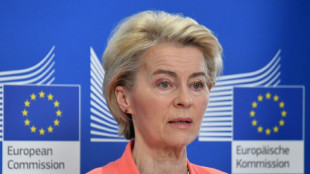
-
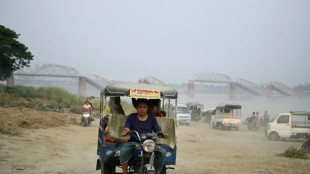 Myanmar's junta chief to head to Bangkok summit as quake toll surpasses 3,000
Myanmar's junta chief to head to Bangkok summit as quake toll surpasses 3,000
-
Lawson vows to prove he belongs in F1 after shock of Red Bull axing

-
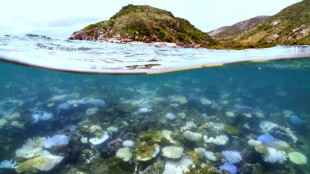 Australia sweats through hottest 12 months on record: official data
Australia sweats through hottest 12 months on record: official data
-
Livestock theft is central to jihadist economy in west Africa
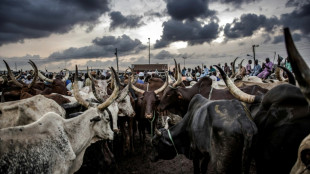
-
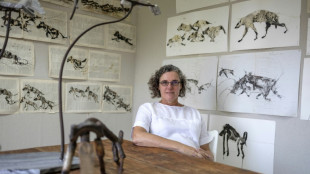 South African artist champions hyenas in 'eco-queer' quest
South African artist champions hyenas in 'eco-queer' quest
-
Danish PM in 'unity' Greenland visit amid US takeover threats
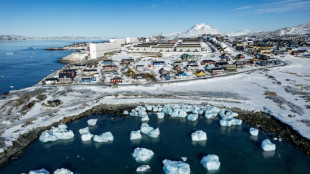
-
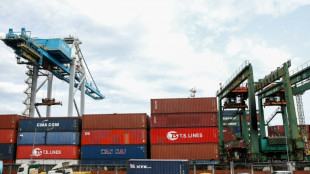 Taiwan says US tariffs 'highly unreasonable'
Taiwan says US tariffs 'highly unreasonable'
-
Lawson says ruthless Red Bull axing was 'tough to hear'

-
 Heat humble Celtics for sixth straight win, Thunder roll on
Heat humble Celtics for sixth straight win, Thunder roll on
-
Trump escalates trade war with sweeping global tariffs
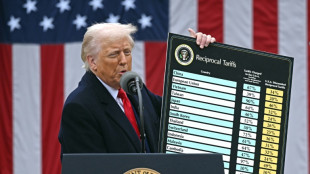
-
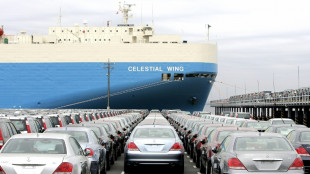 Japan says US tariffs 'extremely regrettable', may break WTO rules
Japan says US tariffs 'extremely regrettable', may break WTO rules
-
South Koreans anxious, angry as court to rule on impeached president
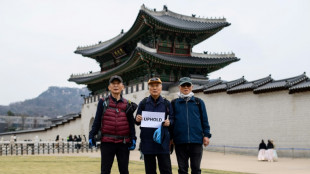
-
 Juve at in-form Roma with Champions League in the balance
Juve at in-form Roma with Champions League in the balance
-
Injuries put undermanned Bayern's title bid to the test

-
 Ovechkin scores 892nd goal -- three away from Gretzky's NHL record
Ovechkin scores 892nd goal -- three away from Gretzky's NHL record
-
Australian former rugby star Petaia signs for NFL's Chargers

-
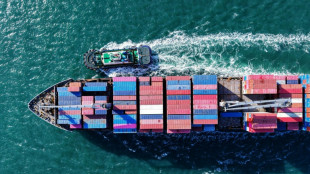 China says opposes new US tariffs, vows 'countermeasures'
China says opposes new US tariffs, vows 'countermeasures'
-
Athletics world watching as 'Grand Slam Track' prepares for launch

-
 Heat humble Celtics for sixth straight win, Cavs top Knicks
Heat humble Celtics for sixth straight win, Cavs top Knicks
-
Quake-hit Myanmar's junta chief to head to Bangkok summit
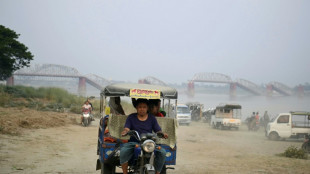
-
 New Spielberg, Nolan films teased at CinemaCon
New Spielberg, Nolan films teased at CinemaCon
-
Shaken NATO allies to meet Trump's top diplomat

-
 Israel's Netanyahu arrives in Hungary, defying ICC warrant
Israel's Netanyahu arrives in Hungary, defying ICC warrant
-
Shiny and deadly, unexploded munitions a threat to Gaza children
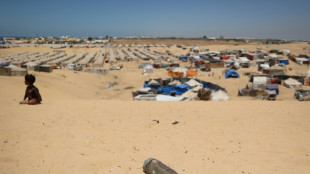
-
 Stocks tank, havens rally as Trump tariffs fan trade war
Stocks tank, havens rally as Trump tariffs fan trade war
-
Altomare hangs on to tie defending champ Korda at LPGA Match Play

-
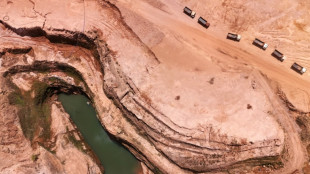 Paraguay gold rush leaves tea producers bitter
Paraguay gold rush leaves tea producers bitter
-
Health concerns swirl as Bolivian city drowns in rubbish

-
 Syria says deadly Israeli strikes a 'blatant violation'
Syria says deadly Israeli strikes a 'blatant violation'
-
Financial markets tumble after Trump tariff announcement


'Stress test': Olive oil producers adapt to climate change
Olive oil producers are improving irrigation and seeking new varieties of olives to safeguard production as climate change upends harvests, causing prices of the staple of the Mediterranean diet to soar.
"Climate change is already a reality and we need to adapt to it," according to the executive director of the International Olive Council (IOC) Jaime Lillo.
He spoke at the opening of the three-day olive oil congress in Madrid which brings together 300 participants from around the globe.
The gathering came as the world's top olive oil producers, including Spain, Italy and Greece, have recorded an unprecedented drop in production over the past two years due to extreme drought and repeated heatwaves.
Global production of olive oil fell from 3.42 million tonnes in the 2021-2022 season to 2.57 million tonnes in 2022-2023, IOC figures show.
And according to data supplied by the organisation's 37 member states, it is set to fall again in 2023-2024 to 2.41 million tonnes.
This has caused prices to soar by between 50 percent and 70 percent over the past year, depending on the variety concerned.
Prices in Spain, which supplies around half of the world's olive oil, have tripled since 2021, to the dismay of consumers.
- 'Complex scenarios' -
Olive oil has been an essential part of the Mediterranean diet for thousands of years. Spaniards for instance use it to cook and to season fish, salads, vegetables and other dishes.
"The rise in prices has been a particularly demanding stress test for our sector. We have never experienced anything like this before," said Pedro Barato, the head of the Spanish Olive oil Interprofessional Organisation.
"We have to prepare ourselves for increasingly complex scenarios that will allow us to face up to the climate crisis," he added, likening the "turbulence" faced by olive producers to that experienced by the banking sector during the 2008 financial crisis.
The outlook is not encouraging.
Over 90 percent of the world's olive oil production comes from the Mediterranean basin.
The United Nations Intergovernmental Panel on Climate Change (IPCC) has said this region is warming 20-percent faster than the global average.
This situation could affect world production in the long term.
"We are facing a delicate situation" which implies "changing the way we treat trees and soil", said Georgios Koubouris, a researcher at the Greek Olive Institute.
"The olive tree is one of the plants best adapted to a dry climate. But in an extreme drought, it activates mechanisms to protect itself and no longer produce anything. To grow olives, you need a minimum amount of water," said Lillo.
- 'Find solutions' -
Among the possible solutions raised at the Madrid congress is genetic research.
In recent years hundreds of varieties of olive trees have been tested to identify the species best adapted to higher temperatures.
The goal is to find "varieties that need fewer hours of cold in winter and that are more resistant to stress caused by lack of water at certain key times" of the year, such as spring, said Juan Antonio Polo, head of technology at the IOC.
The sector is also looking to improve water use by storing rainwater, recycling wastewater and employing technology to use less water to irrigate trees.
This means abandoning "surface irrigation" and instead using "drip systems" which bring water "directly to the roots of the trees" to avoid water loss, said Kostas Chartzoulakis of the Greek Olive Institute.
Farmers are abandoning production in certain areas that could become unsuitable for olive trees because they are too dry and moving it to other regions.
There has been a rise in new olive tree plantations, although on a small scale, in regions previously not used to grow the crop, said Lillo, adding that he was "optimistic" about the future.
"With international cooperation, we will gradually find solutions," he said.
D.Kaufman--AMWN
